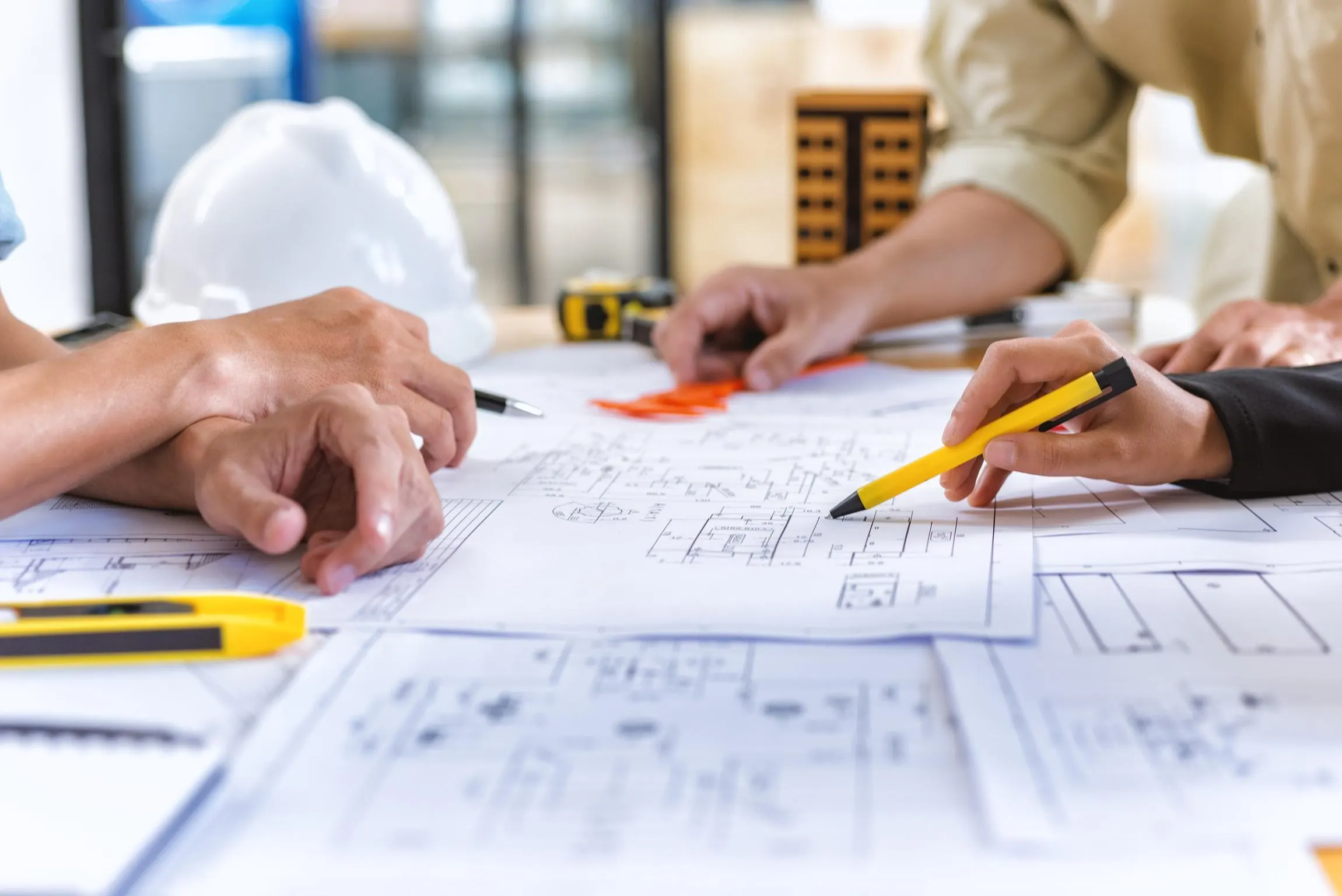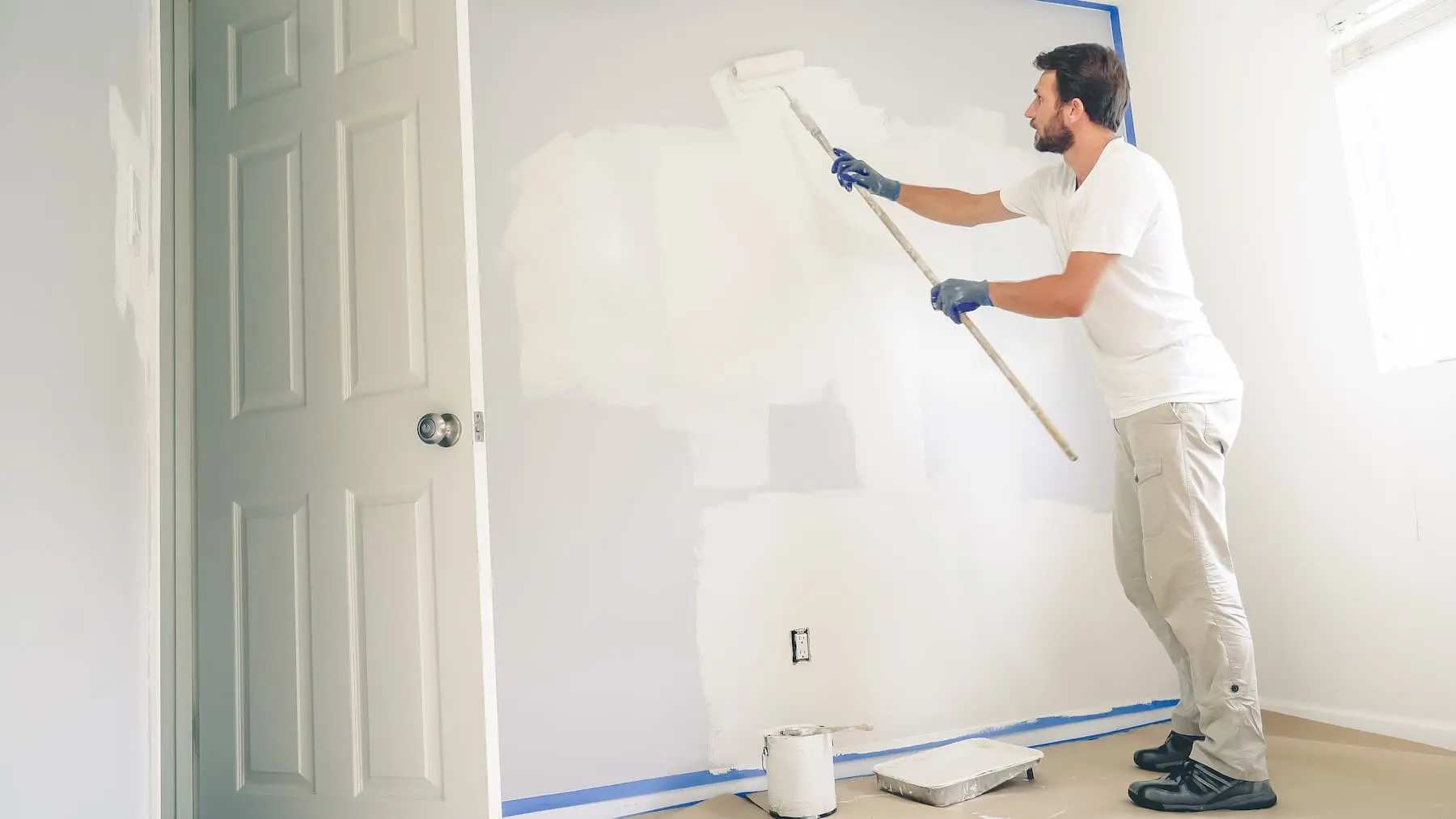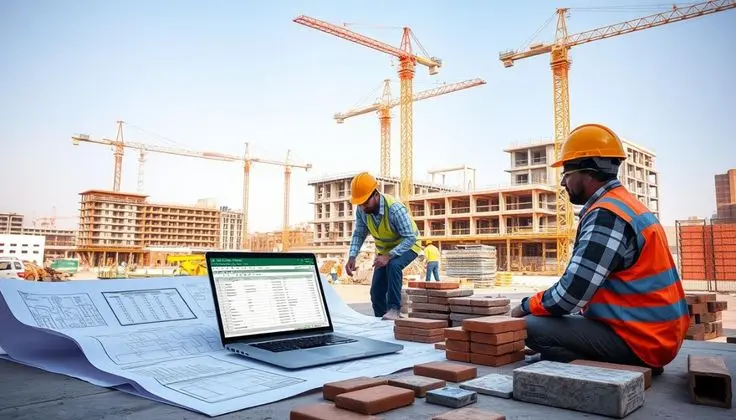In the realm of the construction industry, a successful project consists of many elements. Among all the ingredients, a comprehensive feasibility study holds significant importance. It acts as a guiding compass. It also helps the clients and all stakeholders involved to decide whether a project is sustainable, viable, and worth the investment.
The construction feasibility study is a detailed analysis that is performed before the initiation of the construction project to understand the viability of the project. It assesses all important aspects of the project before construction starts in a bid to validate the project’s practicality. It helps planners decide whether to proceed, identify potential problems, and predict success. The blog will explore the details of the feasibility study, its importance in a construction project, and its steps. Let’s delve into the details of the feasibility study.
What is a Feasibility Study in Construction?
The feasibility study for the construction project consists of an examination of all aspects of the project prior to construction. It is also the process of assessing and researching the location and design of a building to determine its validity and success. The purpose of these studies is to thwart the project’s failure by analyzing all the challenges or issues that could hamper the project’s success.
The study is usually performed during the preconstruction stage, involving a top-to-bottom approach to determine whether the project can be completed realistically according to the timeline or not.
Who Conducts a Feasibility Study?
The construction project’s feasibility is performed by different professionals according to their level of expertise. Here is the list of these professionals!
| Professionals | Role in the Feasibility Study | Importance |
| Project investor | Helps in commissioning the feasibility studies to assess viability | Ensuring the alignment of business goals and objectives with financial plans |
| Business analyst | Assesses business needs, market trends, demands, and competitive edge | Identifying whether the project is market viable and sustainable |
| Project manager | The managers communicate the feasibility studies, manage timelines, and ensure the addressing of stakeholder requirements | Acting as a collaborative bridge among all the stakeholders involved |
| Engineers | Examines technical needs, resources, design options, and execution issues | Determining the technical viability of the project |
| Financial analysts | performs cost-benefit analysis, funding requirements, and risk assessments | Ensuring financial feasibility |
| Legal advisors | Assesses regulatory compliance, permits, and contractual issues | Ensuring the project’s compliance with regulatory approvals and safety standards |
| Marketing experts | Analyzes market trends, pricing strategies, and customer base | Aligning market demands with the construction project |
| Environmental specialists | Reviews environmental impacts, approval, and sustainable practices | Aligning environmental needs with feasibility studies |
| Human resources experts | Examines workforce requirements, training needs, and labor costs | Determining if the project can be adequately staffed and maintained |
| Consultants | Provides unbiased analysis across technical and operational areas | Bringing expertise and credibility to every decision |
| Government regulatory bodies | Conducts and validates feasibility study for infrastructural projects | Ensuring the public projects meet national development goals |
Types of Construction Feasibility Study
There are five different types of construction project feasibility studies. Here is the detail of these types!
Technical Feasibility
Technical feasibility consists of an examination of all engineering requirements, deciding whether the project can be constructed using technology, materials, and methods. It also assesses the suitability of the construction techniques, material selection, and the available designs to complete the project. In the technical feasibility study, seismic studies, geologic hazard assessments, and soil testing are conducted to understand the site conditions and location constraints.
Economic Feasibility
In economic feasibility, all financial aspects of the project are taken into account. It involves estimating the costs and predicting the potential revenue. It also assesses funding options, cash flow analysis, and return on investment. The feasibility report should also include an estimation of all materials, labor, equipment, and land acquisition costs. A detailed assessment of profitability allows project managers and investors to decide whether the construction venture will meet their expectations or not.
Legal Feasibility
Legal feasibility ensures that the project complies with building laws and regulations. It also ensures alignment of the construction project with zoning laws, building codes, and other legal requirements to avoid legal challenges that could bring setbacks and indefinite delays in the construction project. Moreover, environmental approvals, permits, insurance obligations, and contractual responsibilities are also discussed under the legal feasibility study.
Operational Feasibility
In this kind of feasibility study, the examination is done on the operational capacity of the construction project. It also investigates whether the project aligns with the clients’ needs, leading to the smooth functioning of the construction. The assessment includes the suitability of design, operational & maintenance costs, and sustainability. Operational components also involve a review of skilled construction workforce, contractor availability, supply chain, and material cost issues.
Scheduling Feasibility
Scheduling feasibility assesses the proposed timeline of the project. It examines the availability of resources and the time needed for each project phase. This study helps identify potential setbacks, delays, and guarantees the completion of the project on time.
Core Benefits of a Comprehensive Study
A comprehensive feasibility study is the most important step before initiating the project, providing you with several benefits. Here is the detail of these core benefits!
Informed Decision-making
A feasibility study provides stakeholders with valuable information for well-informed decisions. By reducing the reliance on assumptions, they give a clear picture of the project with every aspect, including financial, technical, legal, and operational. This knowledge allows for intelligent choices, better planning, and effective execution.
Financial Carity & Profitability Assessment
The feasibility studies determine the total cost of the project, including direct and indirect costs. It also offers insights into revenue forecasts, return on investment, and payback period. Moreover, it also helps in comparing the alternative funding options according to project needs.
Improved Project Success rate
A feasibility analysis enhances project success by identifying potential issues early. The project managers can address these challenges before they become major roadblocks. Understanding the project’s strengths and weaknesses enables the creation of an effective plan and reduces the risk of failure.
Risk Identification & Mitigation
The analysis highlights potential risks, whether these are financial, operational, regulatory, or legal in nature. By examining all the issues, the analysis provides strategies for mitigating the risks before execution. It prevents costly mistakes by assessing hidden and prominent risks.
Better Resource Allocation
Feasibility studies help allocate resources properly. By identifying the project’s needs and challenges, managers can use materials, labor, and time effectively. This prevents waste and keeps the project on budget and schedule.
Market Validation
It analyzes market trends, demands, and customer preferences by identifying target market segments and pricing strategies. The analysis also ensures the proposed service fits into current and future market needs.
Improved Stakeholder Confidence
Feasibility studies in construction projects provide professional and structured analysis that breeds trust and confidence among the stakeholders. In the case of improved confidence, one can have an increased chance of securing more funding and gaining the trust of investors.
How to Conduct a Feasibility Study: A Step-by-Step Guide
The feasibility study consists of several steps. Here is the detail of these steps!
Project Description
The first step involves the determination of project scope and objectives. It includes defining the idea of the project and setting clear objectives and success criteria. In the next step, identify the expected results and deliverables, including infrastructure and other possible results. Presenting the project description most clearly will give you clarity and ensure your project’s success in the best possible way.
Market Analysis
In the market analysis, start by defining the targeted customers and segments. One must estimate current and future market size along with the identification of key players, competitors, market share, and pricing strategies. Analyze market trends to see if similar projects are successful. This helps determine if there is a real need for the project and if it can be profitable.
Site Analysis
The next step involves the analysis of the sites for the projects. It is important to consider factors such as accessibility, location, and environmental impact. One must find a suitable location that is easy to access with minimal ecological implications.
Technical Feasibility
In technical feasibility, the managers determine whether the project can be executed with available technology, infrastructure, and expertise or not. It also involves determining suitable facilities, resources, and labor force for the construction project. One must ensure the feasibility with respect to logistics and supply chain.
Financial Assessment
Estimate the project costs and potential returns on investment. The study includes all expenses, ranging from materials, equipment, and labor rates to permits and fees. Conduct a cost-benefit analysis to see if the benefits outweigh the costs. One must research the different funding options for the construction to ensure the project has the most reliable financial support.
Legal and Regulatory Feasibility
In this step, one must review regulatory approvals, zoning laws, and building codes to align the project’s requirements with all legal specifications in order to avoid any issues. Estimate the costs to obtain approvals. In the case of any legal issue, one must rectify it before proceeding with the construction. Make sure all necessary permits and approvals are obtainable.
Environmental Impact Assessment
The next step revolves around determining the potential environmental impacts of the project. Identify any unfavorable and unpredictable environmental impacts and propose mitigation strategies to tackle these effects. This helps ensure that the project is ecologically friendly and sustainable.
Risk Assessment
Besides environmental assessment, one must evaluate potential risks and inaccuracies that could affect the project. After identification, one must craft effective strategies to mitigate these assessed risks along with safety standards.
Evaluation and Decision-Making
In the last step, it is important to summarize the findings from all types of feasibility studies. Based on these findings, one must provide effective recommendations demonstrating whether the project should proceed and under what conditions. This final step ensures that all aspects have been taken into account, leading to well-informed decisions.
Overcoming Common Challenges
It is an undeniable fact that a feasibility study is not bereft of challenges. During the analysis, some issues arise, leading to reduced efficiency of the construction project.
- The first and foremost challenge involves incomplete and inaccurate data. Most of the feasibility studies rely on market trends, demands, and research; it is important to ensure that data remains up-to-date. If the data is outdated and incomplete, the findings could create inaccuracies. Therefore, the solution lies in using multiple data sources or hiring a professional consultant.
- Predicting costs during early pre-construction planning also creates problems due to fluctuating prices, inflation, labor shortages, and unpredictable conditions. Therefore, one must use historical cost databases, including contingency allowances, as a solution.
- Uncertainty in regulatory approvals and zoning laws can also delay the construction project. Engaging with local authorities early can solve this issue. In the case of difficulty, one can hire professional legal experts to speed up the process.
- Stakeholders like investors, project managers, and clients may have varying expectations. Clear communication and collaboration among stakeholders are vital. Hold regular meetings and provide updates on daily basis. Explain the feasibility study’s purpose and findings clearly for better understanding.
- Feasibility studies may also face delays due to lack of skilled professionals and poor communication. Developing a clear timeline will help in managing time and resources.
- For technical concerns, consult with experts and review the latest updates. For environmental problems, conduct thorough impact assessments and develop eco-friendly plans.
Are You Looking For an Expert for Construction Feasibility Study?
Are you looking for a professional firm that can help you with a feasibility study for your construction project? Look no further than Cost Estimator. Being the best company in the town, we excel in understanding and delivering feasibility studies through cutting-edge tools and techniques in all kinds of construction projects. We deal with all aspects of the feasibility study. Our estimators have been equipped with years of expertise and knowledge. They carefully understand the market trends, design requirements, financial timeline, and legal approvals, and offer the best possible study techniques. They also help in understanding project requirements according to your scheduling. If you are looking for an expert company specializing in construction feasibility studies, contact us now for a precise feasibility study.
Get In Touch With Us Today For More Details
Final Thoughts
It is hard to deny the importance of the feasibility study for construction projects. A feasibility study can be defined as an examination of all aspects of the project before construction. It is also the process of assessing and researching the location and design of a building to determine its validity and success. If you are looking for a reputable firm, Cost Estimator is the right platform. To explore further services, contact us or visit our website.
FAQS
What is a feasibility study in construction?
It is an assessment that is based on the examination of risks, practicality, and potential success of a proposed construction before the major investment.
Who performs a construction feasibility study?
Financial analysts
Architects
Designers
Project managers
Legal experts
Consultants
What is the proper time to conduct a feasibility study for a project?
It should be conducted at the pre-construction stage before finalizing project design, approval, and financing.
How long does a construction feasibility take?
The duration of the feasibility study depends on the project size, scope, and complexity. On average, it can take a few weeks to several months as large construction projects require a long duration.
What are the challenges one can experience during a feasibility study?
Inaccurate data
Unforeseen environmental conditions
Cost overruns
Legal constraints
Zoning restrictions
Poor site conditions
Inexpertise





